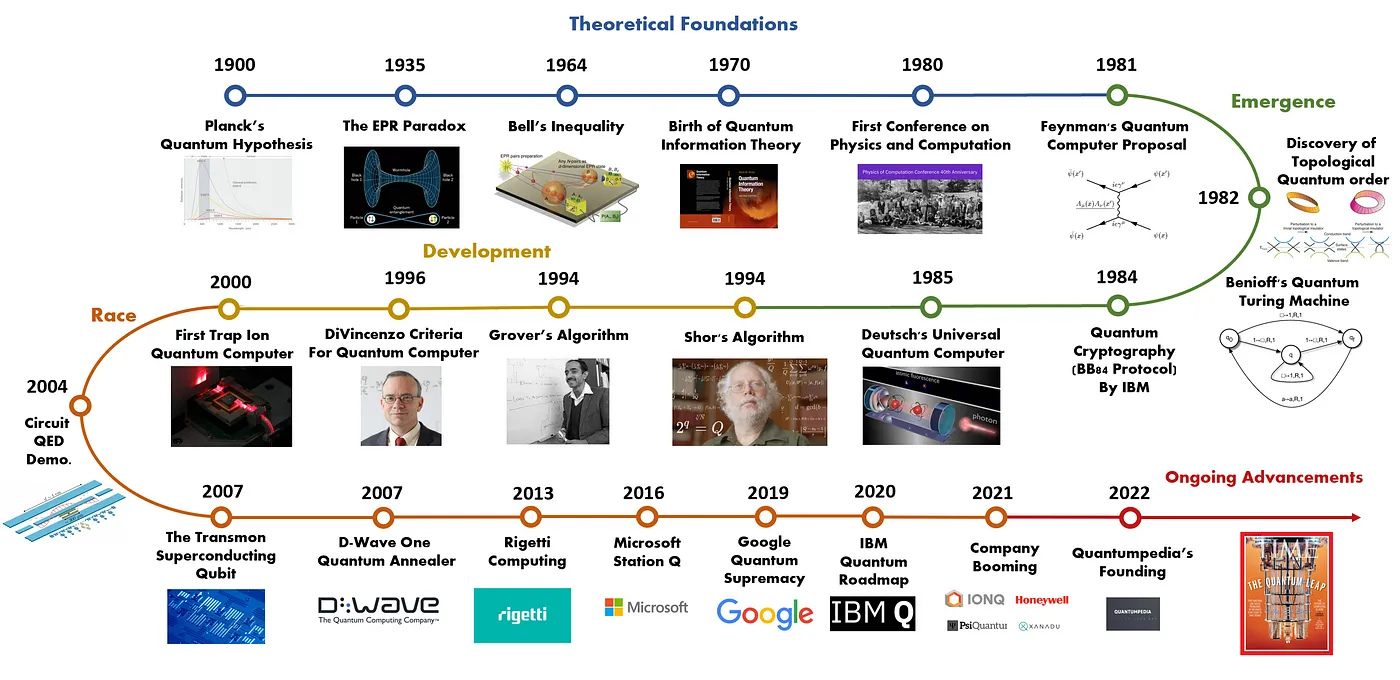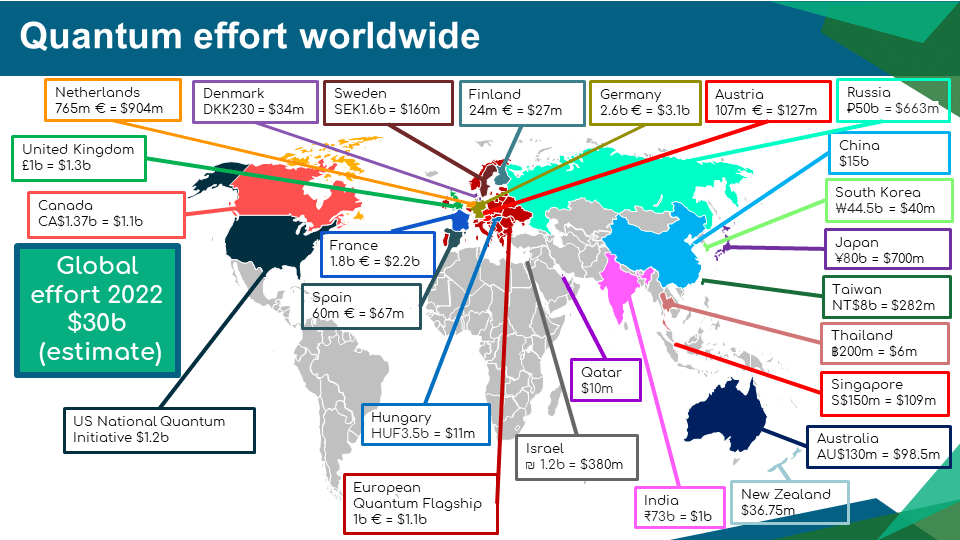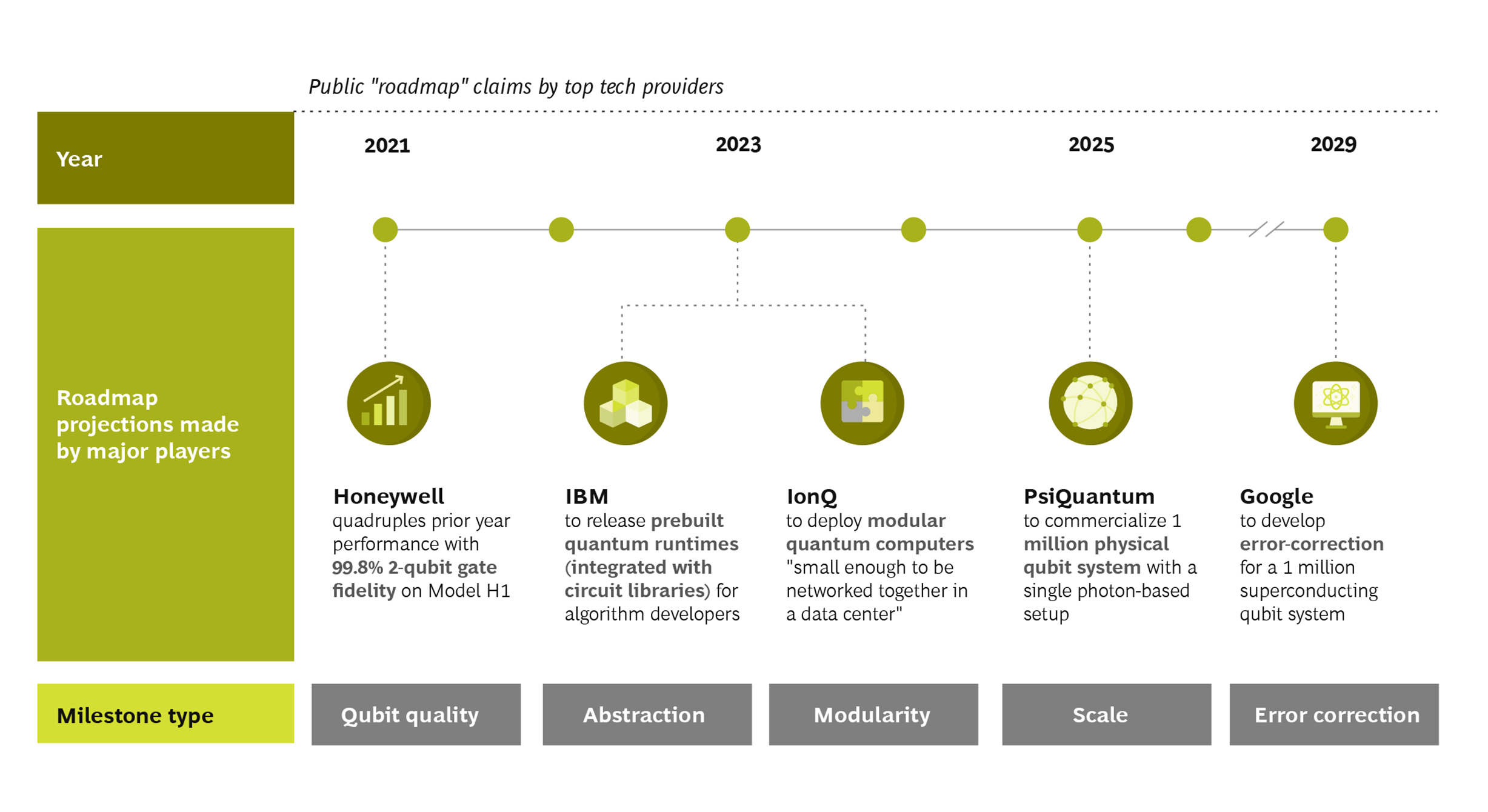
Quantum Computing 🌐 the Next Big Thing in Tomorrow's Innovations 💡
13 March, 2024
Quantum computing, a cutting-edge technology poised on the brink of transformation, holds immense potential yet to be fully realized. While it may seem enigmatic and futuristic, quantum computing offers a groundbreaking approach to problem-solving with increased computational capacity.
Practical applications may emerge to address complex challenges far outside today’s reach. Truly, quantum computing reveals computing’s quantum future.

A Novel Approach To Complex Problem-Solving
By leveraging quantum physics, this technology provides a new way to quickly solve immense problems beyond even the most powerful supercomputers. Quantum computing calculates using the fundamental rules of nature.
Rather than bits, quantum systems use qubits like electrons and photons that represent zero and one at once. This allows the computer to explore multiple solutions simultaneously, vastly outperforming classical approaches.
Although not expected to directly replace conventional PCs, quantum may unlock radically enhanced cloud applications by efficiently solving previously impossible calculations. As the science advances, its potential grows exponentially.

Tech Giants Lead the Charge of Trillion Dollar Industry
Experts predict quantum computers could drive nearly $1 trillion in annual revenue by 2050. Their applications span manufacturing, pharmaceuticals, finance and more.
Companies like IBM and Google are investing heavily to develop quantum hardware. Though not ready for applications yet, their progress showcases quantum computing's potential to solve immense problems at unprecedented speed.
Google and IBM have showcased quantum systems' capabilities through landmark experiments. This paves the way for a computing revolution across industries and sciences.
Unlike classical computers, quantum systems can solve previously impossible problems. This makes them ideal to power artificial intelligence using vast data—a task requiring immense computational might.
As tech giants continue progress, quantum computing looks poised to revolutionize how we process information. Trillions in value may be unlocked if it fulfills its astonishing promise.

IBM Quantum Leap
In 2019, IBM introduced the world to commercial quantum computing with its groundbreaking debut. Fast forward to 2020, and IBM boldly declared the start of the quantum decade at CES 2020.
Recently, IBM made waves in the tech world by introducing a revolutionary quantum computing machine. Dubbed Quantum System Two, this innovation employs "Heron" chips, utilizing subatomic particles instead of conventional binary digits.
This introduction coincides with a fierce competition among tech giants, including Microsoft, Google, and Baidu, to develop quantum computers. These machines leverage quantum bits (or qubits), capable of existing in a state of superposition, representing both 1 and 0 simultaneously.
IBM's Quantum System Two showcases unprecedented computing power. As IBM's quantum computing chief stated, even a multitude of supercomputers combined couldn't match the capabilities of these future machines.

Looking ahead, IBM's Quantum Development Roadmap outlines a decade-long plan. Priorities include enhancing gate operations to facilitate the scaling of quality towards advanced systems. In the quantum realm, IBM leads the charge towards an era of limitless possibilities. Join us as we redefine the boundaries of computing technology.
Quantum Cloud Services
Trend Alert
Recent developments in quantum computing have brought forth the emergence of quantum cloud services. Giants like IBM and Microsoft now offer cloud-based platforms, granting users access to quantum processors and the ability to experiment with quantum algorithms without the need for specialized hardware.
Accelerating Innovation
This shift democratizes quantum computing resources, driving research and development forward. It fosters collaboration and innovation across various industries, expediting breakthroughs in the quantum realm.
Accessible Exploration
Researchers, scientists, and enthusiasts alike can now engage in running quantum algorithms and testing applications through intuitive cloud interfaces. This accessibility nurtures a broader quantum community and fuels the momentum of discovery.
Quantum Software for Quantum Exploration
Ecosystem Expansion
In recent news, there's been a surge in the development of quantum programming languages, algorithms, and software tools. Companies like Qiskit (IBM), Cirq (Google), and Quipper (Microsoft) are leading the charge, empowering developers to leverage the potential of quantum computing.
Collaborative Frameworks
Open-source quantum software frameworks such as Qiskit and Cirq facilitate collaborative research efforts globally. They enable the quantum community to build upon each other's work, tackling challenges like quantum error correction and algorithm optimization.
5 Key Industries to Benefit from Quantum Computing
Healthcare:
Quantum computing can enhance medical diagnosis, ensuring quicker and more efficient analysis of medical data for improved treatment outcomes. It can aid in medical research, accelerating the development of new medicines and treatments for previously incurable diseases like cancer.
Artificial Intelligence:
Quantum-powered algorithms will become more sophisticated, processing data faster and leading to more powerful AI technology. This advancement can revolutionize machine learning applications, such as language learning for real conversations with AI models.
Big Data:
Quantum computing will increase the value and quantity of extracted information from data, benefiting sectors reliant on data flow and analysis. This advancement will enhance hybrid cloud technologies and improve data analysis capabilities.
Logistics:
By optimizing logistics processes, quantum computing will enhance efficiency in manufacturing, production, and delivery. This optimization will lead to reduced environmental waste, cost savings, and streamlined operations for businesses.
Finance:
In finance, quantum computing can optimize financial portfolios and enhance risk management through advanced modeling systems. It can improve tasks like portfolio risk optimization and fraud detection while offering predictive capabilities for economic trends.
Quantum computing, with its unparalleled processing capabilities, is poised to revolutionize various aspects of our lives across different industries.
Deploying Quantum Computers

Limited Accessibility:
Quantum computers demand specialized hardware, limiting their availability. Currently, only major hyperscalers and select hardware companies offer quantum computer emulators and limited-sized quantum computers via cloud services.
Target Applications:
Quantum computers excel in compute-intensive tasks, prioritizing problems that don't require real-time processing. However, their architecture is not yet mature enough to handle large data sizes efficiently.
Hybrid Deployment:
To overcome limitations, quantum computers are often deployed alongside classical counterparts in a hybrid fashion. This integration optimizes performance while leveraging the strengths of both systems.
Power Requirements:
While quantum computers themselves consume minimal power, maintaining their operation requires specialized cryogenic refrigerators to sustain low temperatures. Each quantum computer unit demands significant power, with current models consuming around 24KW per unit for approximately 1000 qubits.
Scaling Challenges:
As the number of qubits increases, the need for cooling refrigerators escalates. Although fixed cooling costs remain relatively stable, supporting millions of qubits necessitates a substantial investment in cooling infrastructure.
Potential challenges to address
Three major challenges need to be addressed in adopting quantum computers:
Integration Costs vs. Rewards:
The first challenge lies in the high integration costs and initial low rewards. Businesses may hesitate due to the significant costs of integration, especially when short-term benefits seem limited.
Translating Quantum Concepts:
The second challenge involves translating complex quantum concepts into understandable terms for business managers and engineers. Quantum mechanics operates on principles unfamiliar to many, posing a barrier to adoption.
Cryptographic Threat:
The third challenge pertains to the cryptographic threat posed by quantum computers. Their ability to swiftly decrypt information encrypted by conventional computers could render existing encryption methods obsolete, posing security risks.

Towards the Future of Quantum Computing
The future of quantum computing is bright, offering unprecedented opportunities across industries. These transformative technologies are poised to redefine the boundaries of computation and drive innovation to new heights.
My Prediction
In the coming decade, we anticipate the emergence of quantum computers surpassing today's supercomputers in performance. However, widespread adoption by governments and businesses may not occur until the 2030s. By the late 2030s and early 2040s, we foresee quantum computers becoming compact and affordable for consumer use.
Relevance to Business
Quantum computing will particularly benefit businesses grappling with complex algorithms that currently require extensive computing time. With quantum technology, tasks that once took days, weeks, or even months to compute can be completed exponentially faster, ushering in a new era of efficiency and innovation.